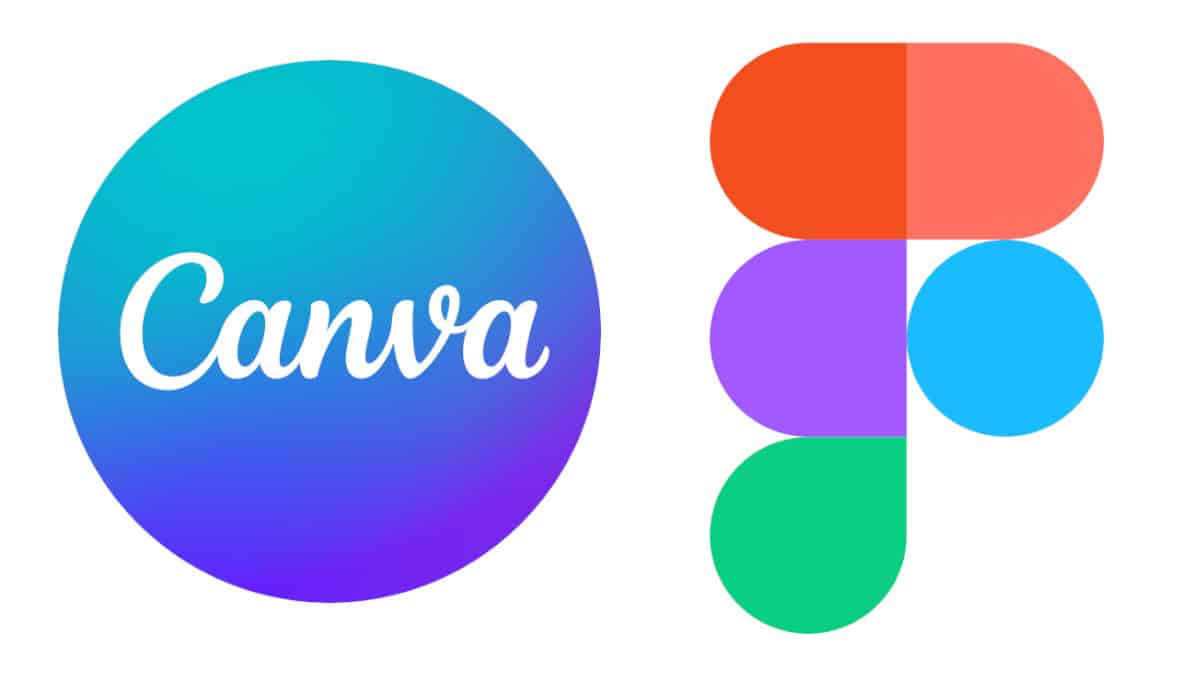Figma Vs. Adobe, WordPress, & Canva: How AI Is Reshaping Design

Table of Contents
Figma and the Rise of AI-Powered Design
Figma, known for its collaborative design capabilities, is steadily integrating AI to enhance its functionality. While currently lacking overtly branded "AI" features, the potential for future integration is immense.
AI Features in Figma
- Currently: Figma's strength lies in its robust plugin ecosystem. Many third-party plugins leverage AI for tasks such as generating design variations, improving image quality, and automating repetitive tasks. These plugins effectively add AI capabilities to the core platform.
- Future Potential: We can anticipate more direct AI integration in Figma, including:
- Intelligent Design Suggestions: AI could offer real-time design suggestions based on best practices and user preferences.
- Automated Asset Optimization: AI could automatically optimize images and vectors for web and mobile, improving performance and reducing file sizes.
- Enhanced Collaboration Tools: AI could facilitate better collaboration by suggesting design iterations, automatically resolving conflicts, and providing intelligent feedback.
Figma's Competitive Advantage with AI
By strategically incorporating AI, Figma can solidify its position as a leader in the collaborative design space.
- Differentiation: Robust AI features would set Figma apart from competitors, particularly those with less agile plugin ecosystems or slower adoption rates of AI technologies.
- Market Impact: Increased AI capabilities could lead to wider user adoption, especially among larger teams needing efficient, AI-assisted workflows.
- Community Role: Figma's thriving community and plugin marketplace will play a crucial role in expanding its AI capabilities organically, fostering innovation and user-driven feature development.
Adobe Creative Suite: Integrating AI for Enhanced Creativity
Adobe has been a pioneer in integrating AI into its Creative Cloud suite, primarily through Adobe Sensei.
AI in Adobe Photoshop, Illustrator, and XD
- Existing Features: Adobe already offers numerous AI-powered features:
- Photoshop: Content-Aware Fill, Neural Filters, and object selection tools significantly streamline image editing.
- Illustrator: AI-powered vectorization tools simplify the process of converting raster images to vectors.
- XD: AI assists with design suggestions and prototyping.
- Future Potential: We can expect more sophisticated AI enhancements, including:
- AI-Powered Design Assistants: An AI assistant could provide real-time feedback, suggest design improvements, and even generate design options based on user input.
- Automated Image Editing: AI could automate complex image editing tasks like retouching, color correction, and object removal.
Adobe's Strategy for AI-Driven Design
Adobe's strategy centers around integrating AI seamlessly into its existing tools, enhancing rather than replacing human creativity.
- Adobe Sensei Integration: Sensei powers many existing AI features and will likely continue to be the backbone of Adobe's AI initiatives.
- Competitive Landscape: Adobe faces competition from other companies investing heavily in AI-driven design tools, forcing a need for continuous innovation.
- Challenges and Opportunities: Balancing AI automation with the preservation of human creativity and addressing potential ethical concerns regarding AI-generated content remain key challenges for Adobe.
WordPress and AI-Powered Website Design and Content Creation
WordPress, the leading content management system, is also being reshaped by AI.
AI and Website Building in WordPress
- AI-Powered Website Builders: Several plugins and themes leverage AI to automate aspects of website creation, including design suggestions, content generation, and SEO optimization.
- AI for Content Generation: Tools can assist with generating blog posts, website copy, and meta descriptions, saving time and effort.
- Image Optimization: AI can optimize images for web performance, automatically resizing and compressing files.
The Future of AI in WordPress Development
The potential for AI in WordPress is vast.
- Automation: AI could automate more complex tasks like theme development, plugin creation, and website maintenance.
- Ethical Considerations: The use of AI-generated content raises ethical questions regarding originality, copyright, and the potential displacement of human writers.
- Impact on Developers: AI tools may change the role of WordPress developers, requiring adaptation and new skill sets.
Canva and the Democratization of AI-Driven Design
Canva, known for its user-friendly interface, is making AI-powered design accessible to everyone.
AI Features within Canva
Canva already utilizes AI for several features:
- Background Removal: AI automatically removes backgrounds from images, simplifying design workflows.
- Text Suggestions: AI suggests text styles and layouts, improving typography choices.
- Design Suggestions: AI may provide design suggestions based on your chosen elements and project type.
Canva's AI-Driven Future
Canva's continued investment in AI will further democratize design.
- Personalized Design Suggestions: AI could generate highly personalized designs based on user preferences and project requirements.
- Automatic Design Generation: AI might create entire designs based on simple text prompts or uploaded content.
- Impact on the Industry: Increased accessibility through AI could broaden the design field, fostering greater inclusivity and innovation.
Conclusion: The Transformative Power of AI in Design – Figma, Adobe, WordPress, and Canva
AI is fundamentally changing how we design, from assisting professional designers in Adobe Creative Suite to empowering novice users on Canva. WordPress benefits from AI-driven content creation and automated website building, while Figma's future integration promises to revolutionize collaborative workflows. The impact of AI on the future of design is undeniable. Learn more about how AI is reshaping design and how you can leverage these advancements in your workflow. Explore the AI features in your preferred design tools and stay informed about the latest developments in this rapidly evolving field.

Featured Posts
-
 Eintracht Frankfurt At Bayern Munich Prediction And Key Talking Points
May 09, 2025
Eintracht Frankfurt At Bayern Munich Prediction And Key Talking Points
May 09, 2025 -
 Nikto Ne Priekhal K Zelenskomu Na 9 Maya Odinochestvo Prezidenta
May 09, 2025
Nikto Ne Priekhal K Zelenskomu Na 9 Maya Odinochestvo Prezidenta
May 09, 2025 -
 Zarem Postoi Podobar Od Bekam
May 09, 2025
Zarem Postoi Podobar Od Bekam
May 09, 2025 -
 How Federal Riding Changes Affect Edmonton Voters
May 09, 2025
How Federal Riding Changes Affect Edmonton Voters
May 09, 2025 -
 Sensex 600 Nifty
May 09, 2025
Sensex 600 Nifty
May 09, 2025
